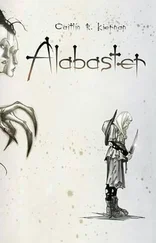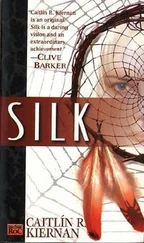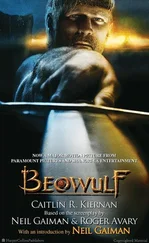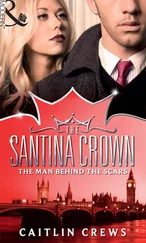Caitlin R. Kiernan - The Red Tree
Здесь есть возможность читать онлайн «Caitlin R. Kiernan - The Red Tree» весь текст электронной книги совершенно бесплатно (целиком полную версию без сокращений). В некоторых случаях можно слушать аудио, скачать через торрент в формате fb2 и присутствует краткое содержание. Жанр: Ужасы и Мистика, на английском языке. Описание произведения, (предисловие) а так же отзывы посетителей доступны на портале библиотеки ЛибКат.
- Название:The Red Tree
- Автор:
- Жанр:
- Год:неизвестен
- ISBN:нет данных
- Рейтинг книги:3 / 5. Голосов: 1
-
Избранное:Добавить в избранное
- Отзывы:
-
Ваша оценка:
- 60
- 1
- 2
- 3
- 4
- 5
The Red Tree: краткое содержание, описание и аннотация
Предлагаем к чтению аннотацию, описание, краткое содержание или предисловие (зависит от того, что написал сам автор книги «The Red Tree»). Если вы не нашли необходимую информацию о книге — напишите в комментариях, мы постараемся отыскать её.
The Red Tree — читать онлайн бесплатно полную книгу (весь текст) целиком
Ниже представлен текст книги, разбитый по страницам. Система сохранения места последней прочитанной страницы, позволяет с удобством читать онлайн бесплатно книгу «The Red Tree», без необходимости каждый раз заново искать на чём Вы остановились. Поставьте закладку, и сможете в любой момент перейти на страницу, на которой закончили чтение.
Интервал:
Закладка:
I had only a little more trouble reaching it than I’d expected. The poison ivy is fucking rampant, and though I’ve never been allergic to it, not to my knowledge, there’s always a first time. Also, about halfway to the tree, the wall’s collapsed, and the “path” is blocked by a deadfall of jagged pine branches that I wasn’t about to try to go over or through. Instead, I crossed the shallow creek, skirting the jackstraw tangle of branches and tumbled stones. My feet got muddy, and then climbing back over the stone wall where it resumed north of the deadfall got me to speculating on what sorts of poisonous snakes lurk in those woods (turns out, thank you, internet, there’s some confusion over whether or not there are any venomous snakes in Rhode Island; there might be copperheads and timber rattlers, but, then again, there might not). I spotted a couple of rabbits, a doe, and almost twisted my ankle two or three times. By the time I reached the tree, it was nearly four p.m., and I was mosquito bitten and drenched in sweat. There’s a large slab of rock at the base of the tree, and I sat down on it to get my breath and wipe away some of the sweat stinging my eyes. It’s harder to see the house from the tree than it is to see the tree from the house, and I assume this is the result of some vagary of topography and vegetation.
At any rate, all in all, the tree was a disappointment. Not much of a mystery, no matter how many circles Harvey and the local yokels might have drawn around it. It’s big, sure. Huge, really. But. that was that. A huge oak tree. I was underwhelmed — though, honestly, what had I expected? To hear the ghostly, disembodied voice of lost and presumably wolf-gnawed Susan Ames calling out to me across a hundred and sixty-eight years? I was too tired to even think of heading back right off, so I lay down on the wide slab of granite or whichever brand of igneous rock is exposed at the base of the tree, and just lay there a while, staring up into the branches. There were catbirds, and they fluttered about and scolded me for intruding upon whatever secret catbird affairs they conduct out there. Truthfully, despite the sweat and the scratches from greenbriers, despite the bug bites, it was nice being there beneath the tree. So what if it has a bit of a bad reputation. So do I. In fact, I suspect I could have fallen asleep there, if not for all the noise the catbirds were making. Certainly, Harvey’s talk of cutting the tree down or burning it — his evident fear of it — seemed entirely absurd, lying there, sheltered from the sun by its broad, whispering leaves.
When I’d gotten my second wind, I sat up and examined the oak a little closer. The roots are genuinely impressive, enormous, like gnarled, arthritic fingers digging into the soil and ferns and detritus of the forest floor. It was impossible not to be reminded of Tolkien’s ents, and, in particular, of Old Man Willow snaring Merry and Pippin in the crushing folds of its trunk, but even these thoughts, of that cunning, black-hearted tree in Bombadil’s Old Forest, failed to elicit from me any actual dread of “the red oak.” A little awe, maybe, that this great tree still stood after all these long decades, after centuries, seemingly impervious to the ravages of time. I walked about its periphery, and found a few places where people had carved initials and dates into the wood. I’ll have to go back and write them down. The only one I recall offhand is “1888,” which I assume was carved into the bark more than forty years after the whole Ames affair had supposedly occurred.
It’s getting late. I should take my pills and go to bed. I have no idea what time that woman will actually show up tomorrow. I ought to get up early and head for Providence or Newport, stay gone a few days and let her wonder, let Blanchard worry about whatever questions she might have. But what I ought to do and what I do are very rarely ever one and the same.
CHAPTER THREE
Constance Hopkins was born not far to the south of here, born and raised in some little slip of a once-was town called Greene that I might well have driven through two or three times now, but I’ll be damned if I can recall the place. She says it was originally named Coffin Corner, until the paternal grandfather of H. P. Lovecraft, Whipple Phillips, bought pretty much the whole village back in the 1850s and renamed it after Nathaniel Greene, the Revolutionary War hero. In the Nineteenth Century, Greene was an important stopping point along the railroad, but then Henry Ford showed up and fixed that good and proper. Now I gather it’s hardly even a town at all. I didn’t ask her why the place had originally been named Coffin Corner, and she didn’t volunteer the information, so maybe she doesn’t know, either. Maybe it’s one of those things that nobody remembers. Maybe it’s a memory that’s been entrusted to a crumbling bit of paper in a library book somewhere.
She showed up around two, driving a rented PT Cruiser, and the car was almost the same color as the summer sky. Almost that exact same shade of blue. I walked down to meet her at the footbridge that fords the creek from Ramswool Pond, and, I’ll admit, at the time, I wasn’t thinking about much more than how maybe I should at least make an effort not to be a bitch. Fake it. Affect a neighborly attitude, because it wouldn’t kill me, and the last thing I need right now is Squire Blanchard deciding I’m more trouble than I’m worth. For all I know, this woman can actually pay her rent on time, and maybe she’ll up and decide she wants to lease the whole damn house out from under me. So, yeah, stuff a cork in it and play nice.
She had a bunch of cardboard boxes and some mismatched suitcases, along with an assortment of stuff you’d expect the artist who’s going to take up residence above your head to arrive with. Two huge wooden easels, for example. I introduced myself, and then helped her lug some of her things back to the house, things she didn’t want sitting out in the hot car — paints and art supplies, several rolled canvases, a plastic milk crate of old LPs. I quickly showed her around the first floor, including the bathroom we will now be sharing, and ended up at the steep, narrow flight of stairs leading to the attic.
“Bet it’s hot as fuck all up there,” she said, squinting into the gloom gathered at the top of the staircase, the gloom and the heat crouched so thickly you could almost see it, and I think I just nodded.
“I don’t suppose you’ve got beer?” she asked me. “A cold beer?”
“I think I probably can fix you up,” I said, and we left her things at the foot of the stairs and backtracked to the kitchen. I’m trying to develop a taste for Narragansett, and there was a whole six-pack in the icebox and two bottles left over from another. I opened one for her, and a second bottle for myself, and pointed at the table and chairs by the window.
“Try to excuse the mess. Try hard,” I said, and she laughed.
I don’t exactly recall now what it was I’d expected from this woman, whatever preconceptions and images I might have formed of her in my mind’s eye. But whatever it was, Constance Hopkins entirely defied and negated my expectations. I think I’d call her striking even if I weren’t a lesbian. And I think I’d call her beautiful, too. Not the sort of beauty you see these days, touted in magazines and on television. That calculated, cookie-cutter glamour of the dull that so many people seem, increasingly, to gravitate towards. Hers is not the sort of face that would ever get lost in a crowd, and sitting here now, I’m not at all confident I can explain what it is about her that leaves me with this impression. Her eyes have some odd, drowsy quality about them — unfocused, distant — but it’s nothing that suggests a lack of alertness. They’re a very particular shade of reddish brown. Maybe I’d call it cinnamon. Or rust. I don’t think I’ve ever seen eyes like hers before. That color, I mean. Her complexion is pale, but not at all pasty. Her hair is jet black and straight, and she was wearing it pulled back in a long ponytail. Sitting there, drinking beer with her, talking, I noticed there’s a very small chip out of one of her upper incisors. I wanted to ask her how that had happened, but I didn’t. Maybe later.
Читать дальшеИнтервал:
Закладка:
Похожие книги на «The Red Tree»
Представляем Вашему вниманию похожие книги на «The Red Tree» списком для выбора. Мы отобрали схожую по названию и смыслу литературу в надежде предоставить читателям больше вариантов отыскать новые, интересные, ещё непрочитанные произведения.
Обсуждение, отзывы о книге «The Red Tree» и просто собственные мнения читателей. Оставьте ваши комментарии, напишите, что Вы думаете о произведении, его смысле или главных героях. Укажите что конкретно понравилось, а что нет, и почему Вы так считаете.












